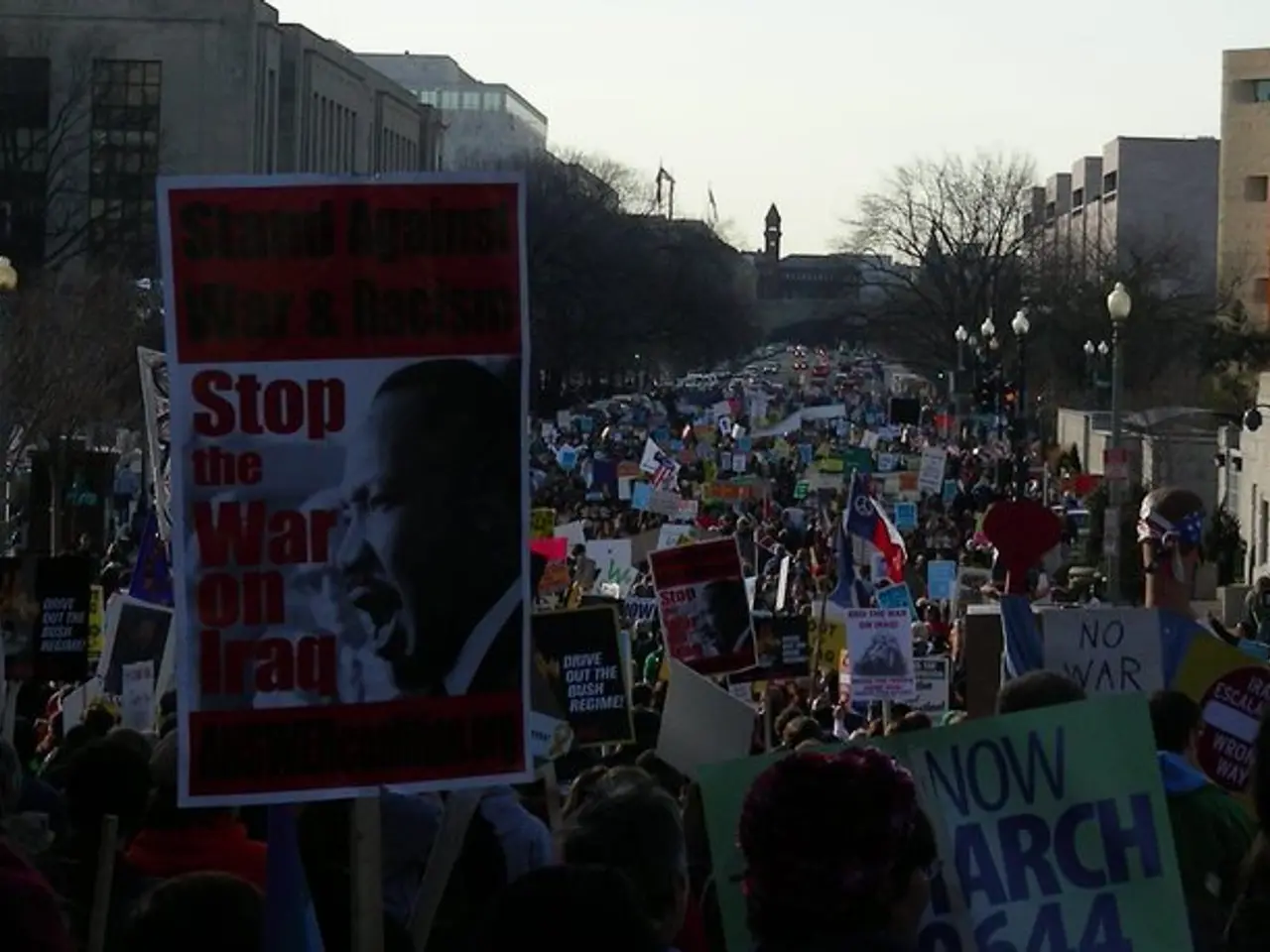Demonstrators in Barishal have been obstructing roads for the 12th consecutive day, advocating for reformation within the health sector.
Protests Against Healthcare Sector Mismanagement Continue in Barishal, Bangladesh
The ongoing protests in Barishal, Bangladesh, against mismanagement and corruption in the healthcare sector have entered their third week, as of August 2025. The demonstrators, primarily students and local residents, are demanding immediate reforms and the dismantling of syndicates controlling hospital administration and services.
Root Causes of the Protest
The protesters' grievances revolve around alleged syndicate practices and corruption within government healthcare facilities, mismanagement, and irregularities in healthcare services. Reports suggest that patients are being denied proper treatment due to these corrupt syndicates.
Protesters' Demands
The protesters are calling for immediate reforms in the healthcare sector, the dismantling of syndicates controlling hospital administration and services, and the modernization and improvement of healthcare services, particularly at Barishal's Sher-e-Bangla Medical College Hospital. Additionally, they are demanding a personal visit from the health advisor to address the issues.
Current Situation
The protests have resulted in road blockades on the critical Dhaka-Barishal highway, causing significant traffic disruptions. Some protesters, including students, have started indefinite hunger strikes demanding reforms. The demonstrations have persisted for over 17 days, with leaders stating that they will continue until their demands are met.
Public Response and Police Preparedness
Metropolitan Police's Airport Police Station Officer-In-Charge (OC) Zakir Sikder stated that they are prepared to handle any chaotic situation that may arise from the protests. Another protester, Faisal Hossain, apologized for any public suffering caused by the protest and expressed solidarity with the protesters' demands, which he considers reasonable and aimed at ensuring proper medical care for the people of the region.
Solidarity and Apologies
Activist and organiser Mohiuddin Roni stated that people are not receiving proper treatment at government hospitals due to a powerful syndicate. Sabbir Hossain, another protester, echoed this sentiment, stating that people are not receiving minimum treatment in government hospitals. He also mentioned that doctors manipulate patients to go to their associated clinics, medical equipment is kept defunct, and ambulance services are insufficient in government hospitals.
The Protesters' Slogan
The protesters' slogan is "Our protest will continue until adequate medical care is ensured." The general public and students have been chanting slogans such as "Discrimination in the health sector will not be accepted," "Break the syndicate," and "End public suffering at Sher-e-Bangla Medical College (SBMC)."
The ongoing protests in Barishal highlight the urgency and depth of dissatisfaction among the protesters with the current state of the healthcare sector. The demonstrations are set to continue until their demands for reforms and the dismantling of syndicates are met.
The protesters find the healthcare sector's mismanagement and corruption, including syndicate practices and irregularities in services, unacceptable, calling for change and modernization, specifically at Barishal's Sher-e-Bangla Medical College Hospital. They advocate for the integration of scientific principles and evidence-based practices in health-and-wellness services to guarantee quality care, a demand that resonates with the public.




